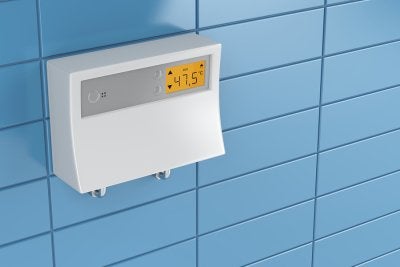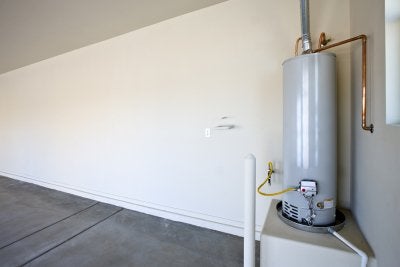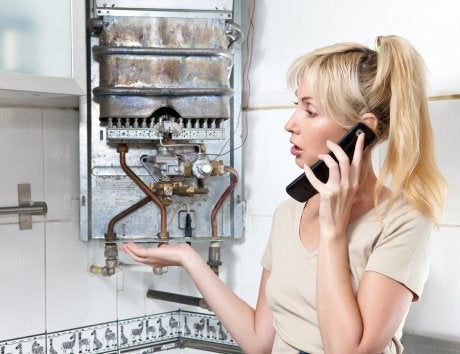-
Should You Switch to a Tankless Water Heater?
Should You Switch to a Tankless Water Heater?
Do you have a standard storage-tank water heater that’s on its way out? If so, you’re probably looking into having it replaced. But with so many options on the market today, which hot water heater is the right one for your home? You could choose to replace your old water heater with another storage-tank model, or you could take the opportunity to switch to a tankless water heater in Jacksonville . Here are some things to consider when making your decision to switch. When in doubt, consult with your local plumber.

What a Tankless Water Heater Is
Like its name suggests, a tankless water heater does not have a storage tank that houses a reservoir of continuously heated water that is available for immediate use. This type of hot water heater is much smaller than its storage-tank cousin, and since it only heats water when needed, it can be relatively energy efficient when compared to a traditional model.
What You Should Take into Consideration
You shouldn’t be too hasty when making the decision to switch over from a standard storage-tank water heater to a tankless one. Be sure to do as much research on tankless water heaters as you can, and talk with a plumbing professional—that way, you can be sure that a tankless water heater is right for you. Before you decide, you should figure out how much hot water you and your family actually use on a daily basis. For example, if you have a large family that requires the use of a lot of heat water, a tankless system may not be a good fit for your home.
The Pros and Cons of Tankless Water Heaters
There are some notable pros and cons regarding tankless water heaters. Pros: Tankless systems don’t take up as much space as standard hot water heaters, don’t need to keep reservoirs of continuously heated water, and may lower your monthly energy bills if you install the right model. Cons: Tankless water heaters cost more upfront to purchase and install than traditional models.
-
Replace a Bad Water Heater Fitting to Prevent a Disaster
A corroded water heater fitting is a disaster waiting to happen. Luckily, replacing a rusted, ready-to-burst fitting is a relatively easy job that you can do yourself. Watch this video to learn how. Of course you can also call your plumber to perform this job for you if you don’t have the tools or the confidence to change out an old fitting yourself.
If you’re concerned about your old water heater, schedule a visit from your Jacksonville plumber. Being proactive about water heater repair and replacement can save you a lot of time, a lot of frustration, and most importantly a lot of money in the long run. Look for a plumbing company that specializes in water heater repair, maintenance, and installation to get the best service and a recommendation you can trust.
-
Comparing Gas and Electric Water Heaters
If your water heater is kaput, you’ll want to buy a replacement unit as quickly as possible. However, considering the cost of a new water heater and how long you’ll be stuck with it, you’ll do yourself a real disservice if you don’t research your options prior to making a purchase. You might also consider buying a new water heater if your old one is nearing or past its expected life, as this can save you a lot of time and frustration later on. Either way, here are a few things to know about gas and electric water heaters so you can make the right decision for your home. Your Jacksonville water heater installation provider can answer any additional questions you have about buying a new water heater.

Cost
Gas and electric water heaters are similar in the initial purchase price, and as long as your plumber doesn’t need to make any retrofits the installation cost for gas and electric water heaters is also similar. However, there are other factors to consider to get a picture of the lifetime ownership costs of gas and electric water heaters. For example, electricity (as a utility) typically costs more than gas, which means electric water heaters can be more expensive to operate and cost more over the long run.
Energy Efficiency
Another important factor to consider when deciding between a gas or electric water heater is energy efficiency. The efficiency of gas and electric water heaters can be compared by their energy factors (EFs), a number between zero and one that relates to how much of each energy dollar results in heater water. A higher EF indicates higher efficiency and, as a result, lower utility bills and a lower lifetime cost of ownership.
Performance
You should also consider your hot water needs and compare them to the performance you can expect from either a gas or electric water heater. For example, if you run out of hot water quickly because different family members are showering, washing dishes, or doing laundry at the same time, consider a tankless gas water heater (also known as an on-demand water heater) that provides virtually instantaneous and unlimited hot water.
-
Comparing Different Types of Water Heaters
A new water heater is a terrific investment for the comfort and efficiency of your home. When you are shopping for new hot water heater, you will have the option of choosing between a tank or tankless water heater. A conventional tank water heater will offer a lifespan of up to 10 years. When you install a tankless water heater , you can expect your unit to last for more than a decade. This type of water heater creates hot water on demand, and is among the most efficient types of hot water heaters available. When you are ready to install a tankless water heater in Jacksonville, be sure to contact a company offering highly rated plumbing repairs. For a comparison of different types of water heaters, check out this video from Howcast.
-
Knowing When It’s Time to Replace Your Water Heater
Your water heater is one of the largest energy consumers in your home. As water heaters age, they become less energy efficient. They also become more prone to failure and have difficulty supplying a household’s hot water needs. The longer you wait to replace an old, inefficient water heater, the more you’ll spend on energy bills and water heater repairs. The key is to know when the time is right to replace your water heater, and we don’t mean waiting until it fails completely. If you recognize any of the following signs, contact a water heater replacement company in Jacksonville to explore your options for a new water heater.
 Poor Water Quality
Poor Water Quality
You can tell a lot about the condition of your water heater by the water that comes out of the hot faucet. If the water appears rusty or has a lot of sediment, it could signal upcoming water heater failure. Another sign of potential failure is hot water with a metallic taste or unusual odor. If you are concerned about the quality of your hot water, schedule a water heater inspection today.Insufficient Hot Water
It’s normal for a tank-style water heater to run out of hot water, but it should do so on a consistent basis. In other words, if your household is running out of hot water faster than normal, this could be an indication of a serious water heater issue. If you have a busy household, consider a tankless water heater, which provides unlimited on-demand hot water.Leaking Water
Contact a Jacksonville water heater repair company immediately if you see leaking water around the appliance where none has leaked before. Leaking indicates an internal failure in the water heater. Disconnect the electricity or turn off the gas to the unit and let the water cool down before attempting to remove and replace the water heater.
RECENT POSTS
categories
- Uncategorized
- Water Heater Installation
- Tankless Water Heater
- Plumbing Services
- Bathroom Remodeling
- Hot Water Heater
- Plumber in Jacksonville
- Water Heater Repair
- Eagerton Plumbing
- Eco-Friendly Plumbing Repair
- Water Damage
- Plumbing Leak
- Sewer Line Repair
- Infographic
- Clogged Drains
- Kitchen and Bathroom Remodel
- Bathroom Plumbing
- Residential Plumbing Services
- Garbage Disposal
- Toilet Repair
- Water Heater Replacement
- Water Conservation
- Emergency Plumbing
- Commercial Plumbing Services
- Kitchen Design Inspiration
- Kitchen Remodel
- low-flow toilets
- Leaky Faucet
- Conserve Water
- Drain Pipes
- Kitchen Sinks
- Vessel Sink
- Plumbing Problems
- Water Leak
- Commercial Remodeling Contractors
- Drain Cleaning Services
